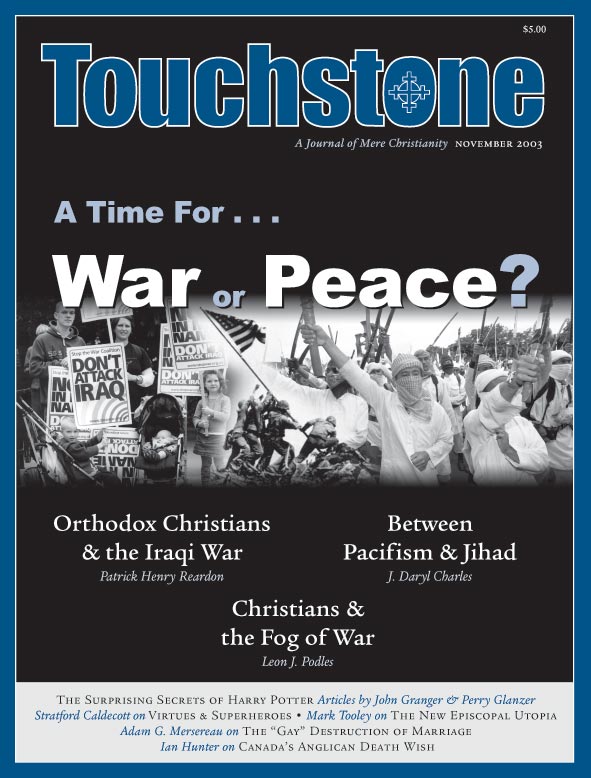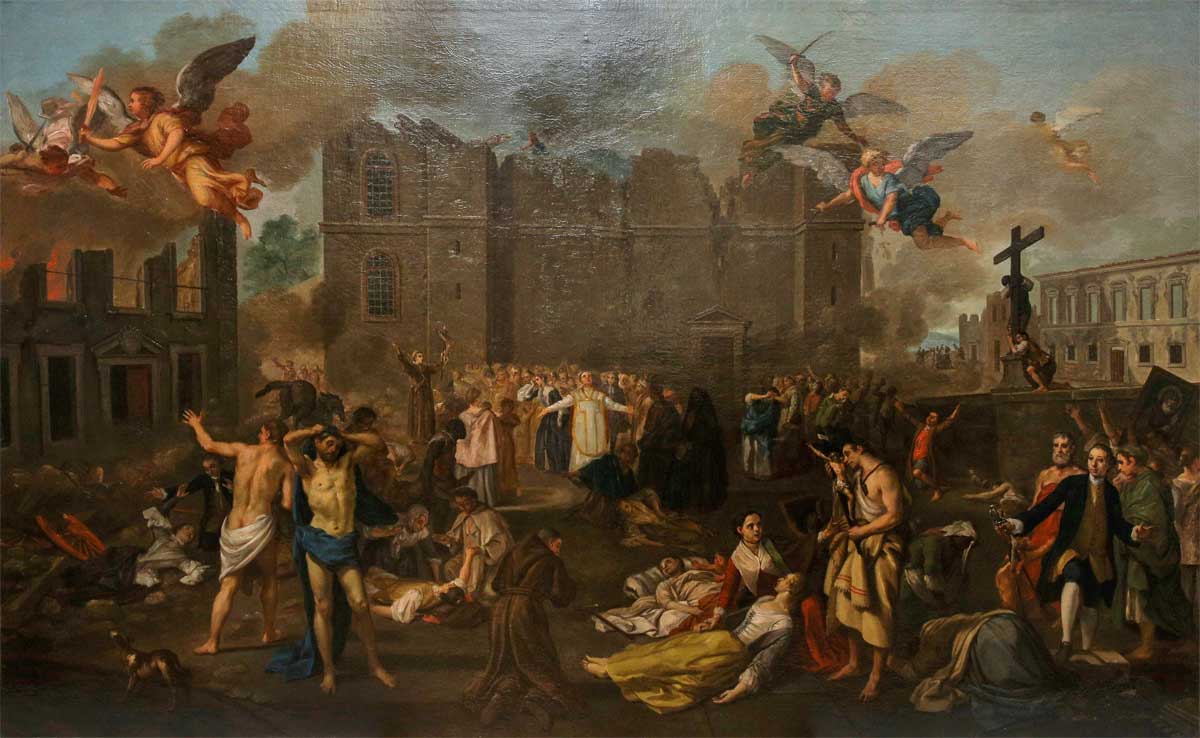Not So Quiet on the Eastern Front
Orthodox Christians & the Iraqi War
by Patrick Henry Reardon
Not all Americans were in concert about the wisdom or moral character of this past spring’s invasion of Iraq, but among our country’s many religious groups it is arguable that none was more deeply divided on the subject of the Iraqi war than the Orthodox Church. In the remarks that follow, I propose to test the lines and shape of that division, persuaded that the latter serves to expose deeper conflicting impulses within Orthodoxy as this church endeavors to find its future here in the West, particularly in the United States. These differing impulses, I will argue, are not only social and historical, but also theological.
Isolated Culture
At the start, let it be clear that I plan to examine only the conflicting ways in which Orthodox Americans perceived the Iraqi war, not the moral merits of the war itself. Much less will I argue a brief for or against the war.
To be sure, the larger part of the American populace was barely aware, if at all, of this recent tension among Orthodox Christians. Not only are these but a small segment of the citizenry, they also represent a religious culture traditionally isolated to a high degree. Indeed, to the extent that Orthodox Christians in this country are noticed at all, they are most often noticed for being different, not to say strange. Standard surveys and news reports, dealing with popular religious trends and phenomena, regularly skip over the Orthodox, in order to investigate more comprehensible and less atypical religious bodies; the Mormons, say, or perhaps the Seventh Day Adventists, or various snake-handling congregations in rural Tennessee.
Then there are those whose only acquaintance with the Orthodox Church comes through such channels as My Big Fat Greek Wedding. These can hardly be blamed for dismissing Orthodoxy out of hand. In addition, Orthodox diocesan newspapers and periodicals, the chief popular sources of “Orthodox news,” are hardly known outside of their own circles. From the perspective of sociology and politics, in short, Orthodoxy in this country is still relatively marginal, so probably few Americans are aware of the deep division that recently afflicted Orthodoxy with respect to the Iraqi war.
Nonetheless, serious readers of the press and the electronic media may have noticed that the official pronouncements of the Orthodox hierarchy last winter and spring were pretty unanimous in their reservations about, and even condemnations of, our country’s projected invasion of Iraq. Those negative assessments came from very high levels of Orthodox authority, such as the patriarchs of Constantinople, Antioch, and Moscow. There were also pastoral exhortations on the subject from Orthodox bishops here in America, some of them both fervent and eloquent, all of them negative.
If those familiar with the pronouncements of the Orthodox hierarchy about the Iraqi war supposed that their negative tone was generally representative of Orthodox Christians in this country, they perhaps began to suspect otherwise on reading an op-ed piece in the Washington Post on Sunday, April 6, entitled “Stripped of Spiritual Comfort.” Its author, Frank Schaeffer, a well-known writer and commentator who is also an Orthodox Christian, bitterly complained about those same bishops, of whom he remarked, “They have dragged not only my church but Jesus into their stand against our government and war in Iraq.” In the course of the next week and more, Schaeffer, who enjoys a greater notoriety than most of the bishops he was censuring, repeated his comments on sundry television and radio talk shows.
With a Marine son deployed in the Middle East, Schaeffer had every reason to be sensitive about the matter, but he was certainly not speaking just for himself. At the very least, he voiced the concerns of the many Orthodox Christians whose parents, sons and daughters, brothers and sisters, relatives and friends were enlisted in the military service of their country, some of them as chaplains. Assorted Orthodox diocesan journals included a few “letters to the editor” that challenged, sometimes irately, the anti-war policies of the journals and their sponsoring bishops.
We may wonder how many more such letters would have been sent, either to those journals or directly to the bishops, if local pastors (the present writer, for example) had not discouraged them, fearful of adding fuel to what might have become a firestorm. There was groaning, grumbling, and gnashing of teeth out in the nave. One heard considerable anecdotal evidence, especially in the South and Midwest, that Schaeffer spoke on behalf of many Orthodox Christians when he complained about being “excluded from my church at the very moment when I most desperately need to be included.”
Patrick Henry Reardon is pastor emeritus of All Saints Antiochian Orthodox Church in Chicago, Illinois, and the author of numerous books, including, most recently, Out of Step with God: Orthodox Christian Reflections on the Book of Numbers (Ancient Faith Publishing, 2019).
bulk subscriptions
Order Touchstone subscriptions in bulk and save $10 per sub! Each subscription includes 6 issues of Touchstone plus full online access to touchstonemag.com—including archives, videos, and pdf downloads of recent issues for only $29.95 each! Great for churches or study groups.
Transactions will be processed on a secure server.
more from the online archives
calling all readers
Please Donate
"There are magazines worth reading but few worth saving . . . Touchstone is just such a magazine."
—Alice von Hildebrand
"Here we do not concede one square millimeter of territory to falsehood, folly, contemporary sentimentality, or fashion. We speak the truth, and let God be our judge. . . . Touchstone is the one committedly Christian conservative journal."
—Anthony Esolen, Touchstone senior editor











